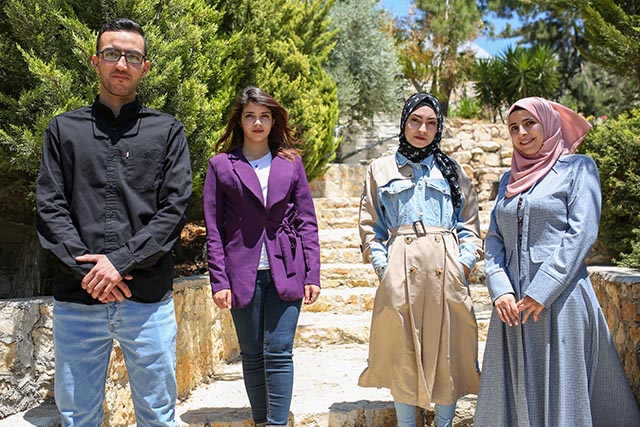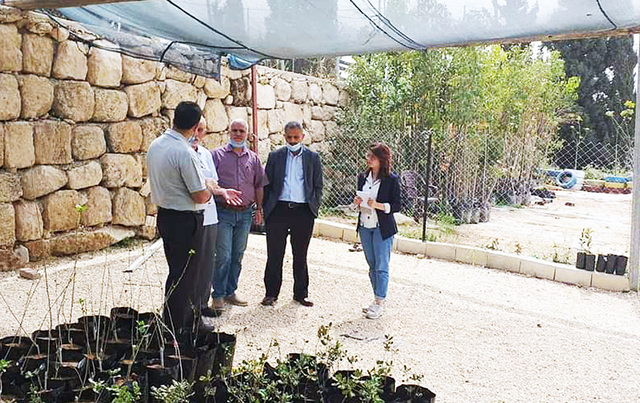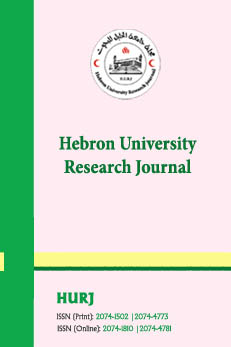SDG2: Zero Hunger
Hebron University’s Endeavors towards SDG 2: Zero Hunger and Mitigating Food Insecurity
Ending hunger, achieving food security, enhancing nutrition, and promoting sustainable agriculture are the objectives of Sustainable Development Goal 2 (SDG 2). Hebron University’s in Palestine is aware of the importance of this objective and has made extensive efforts to help it be realized by tackling food insecurity and encouraging sustainable habits within the local and larger population.
Developing Agricultural Education: Hebron University understands the critical role that education plays in achieving SDG 2. The university provides courses in agriculture and the environment to provide students the information and abilities they need to meet the difficulties of sustainable food production. The university directly contributes to improving agricultural practices and guaranteeing a future with greater food security by graduating highly qualified professionals in agriculture and associated sectors.
Sustainable Agricultural techniques: Hebron University actively promotes sustainable agricultural techniques that increase productivity while reducing environmental effects through research, outreach, and educational initiatives. The university places a strong emphasis on the value of effective water management, prudent pesticide and fertilizer use, and the adoption of cutting-edge methods that maximize resource utilization and cut down on waste.
Hebron University collaborates with the neighborhood through workshops, seminars, and awareness campaigns that emphasize sustainable agriculture and sensible food consumption. The university helps people make informed decisions that help reduce food waste and promote sustainable eating habits by disseminating information and best practices.
new Farming Methods: Hebron University investigates and promotes new farming methods to address issues relating to Palestine environment and constrained agricultural area. Some methods that enable year-round crop cultivation and effective resource management include hydroponics, vertical farming, and controlled environment agriculture. These techniques ultimately help to boost food output.
Research on Food Security: To address the issues the area is facing, the university carries out studies on crop development, agricultural resilience, and food security. This study provides guidance for practices and policies that improve food security, lessen post-harvest losses, and guarantee a steady supply of nutrient-dense food.
Collaboration with Stakeholders: To jointly address food insecurity, Hebron University works with governmental entities, non-governmental organizations, and international partners. Utilizing a variety of resources and skills, these partnerships assist in developing a coordinated strategy for reducing hunger and advancing sustainable agriculture practices.
Hebron University places a strong emphasis on the value of balanced diets and nutritional knowledge because it recognizes the connection between food security and nutrition. The institution provides initiatives to inform people about the value of consuming a variety of wholesome foods to fight malnutrition and enhance general health.
Through its numerous projects aimed at boosting agricultural education, encouraging sustainable practices, involving communities, and carrying out significant research, Hebron University has demonstrated its commitment to SDG 2, Zero Hunger. The institution supports larger initiatives to build a society where everyone has access to enough, safe, and nourishing food by cultivating a culture of responsible agriculture and food consumption. Hebron University is crucial in tackling food insecurity and promoting the SDG 2 goals both inside and outside of Palestine because to its all-encompassing strategy.
The Alumni Unit supports 4 entrepreneurial projects in agribusiness and food

With the generous support of the Danish Government in cooperation with the Palestinian Ministry of Agriculture and with the support of the Food and Agriculture Organization of the United Nations (FAO) Green Jobs, Hebron University Alumni Unit is carrying out activities in support of the development of green projects for the Palestinian youth.
Hebron University has provided 64 paid workplace training opportunities its graduates

With the generous support of the Danish Government in cooperation with the Palestinian Ministry of Agriculture and with the support of the Food and Agriculture Organization of the United Nations (FAO) Green Jobs, Hebron University Alumni Unit is carrying out activities in support of the development of green projects for the Palestinian youth to contribute to promoting access to productive and decent jobs, job creation and sustainable income.





